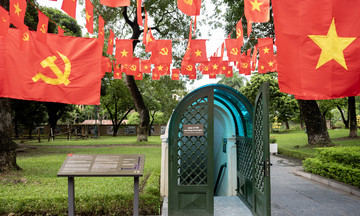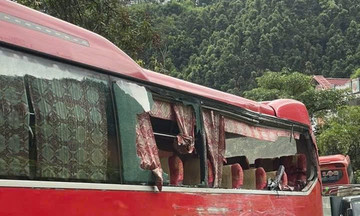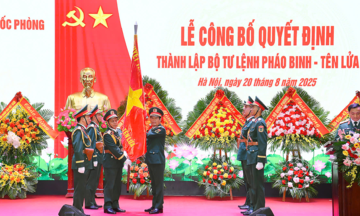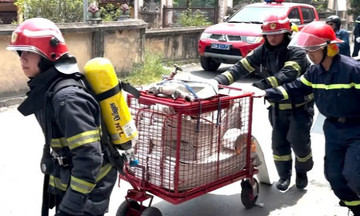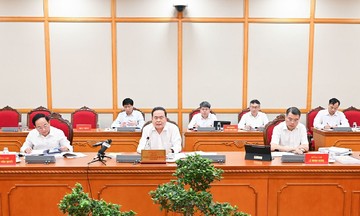In mid-August, two farmers from the Quyet Tien Ecological Agricultural Cooperative navigate a small boat through the flooded fields of Phu Tho commune (formerly Tam Nong district). They're inspecting the nets surrounding a 150-hectare enclosed area, a "natural fish farm" established by the cooperative for the flood season.
The nets were installed a month earlier to prevent outside fishing. In addition to the wild fish and shrimp that naturally enter with the floodwaters, the cooperative's 70 member households released 600 kg of fingerlings, including grass carp, silver carp, and giant gourami. The rising floodwaters, nearly a meter deep, decompose rice straw, creating a rich source of algae, plankton, and other nutrients, providing ample natural food for the fish. For the entire 4-month flood season, farmers don't need to worry about feeding or caring for the fish.
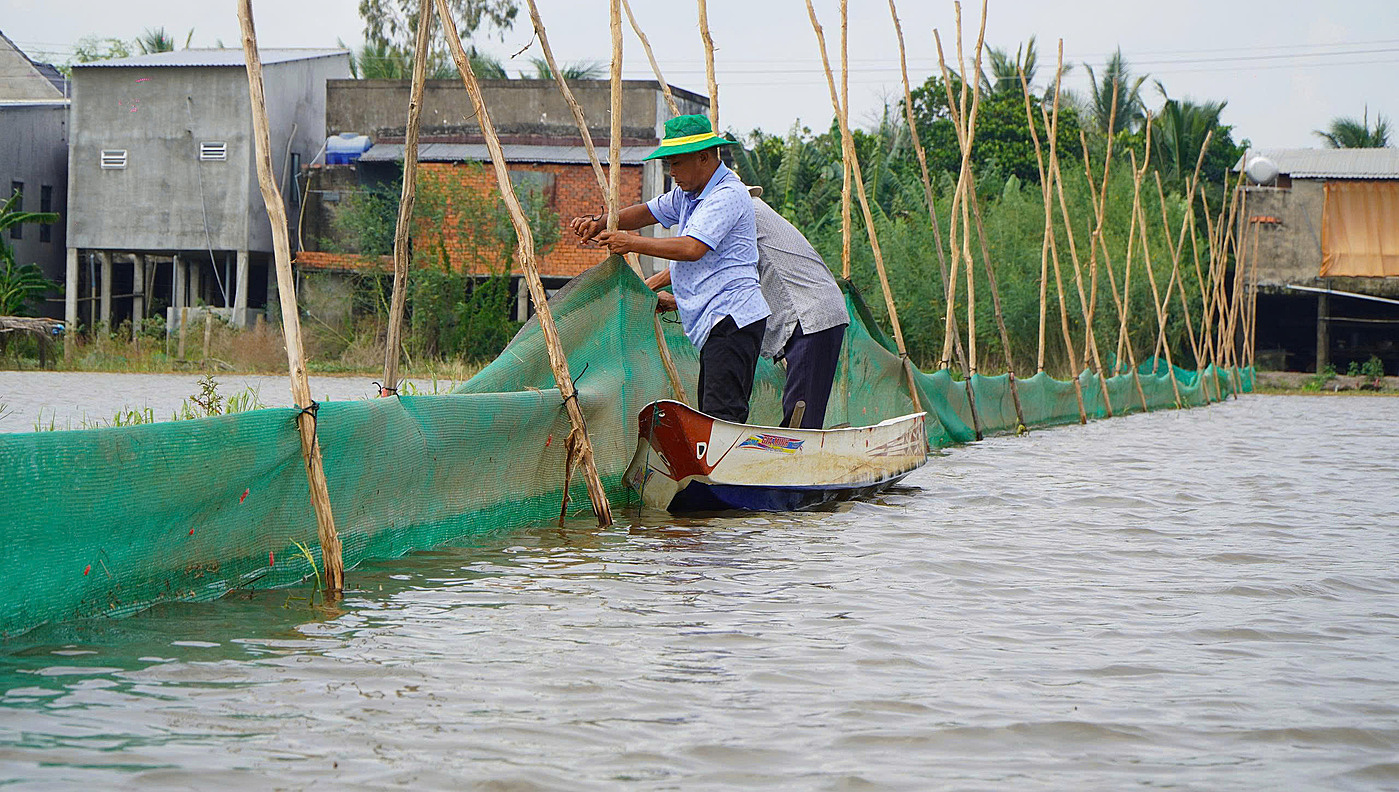 |
Quyet Tien Cooperative members inspect the nets surrounding the fish stocking area. Photo: Tran Thanh |
Quyet Tien Cooperative members inspect the nets surrounding the fish stocking area. Photo: Tran Thanh
Last year, a pilot project on a 20-hectare area yielded about 10 tons of mature fish, generating a profit of nearly 200 million VND – equivalent to a rice harvest. Small fish and those carrying eggs were released back into the water.
Nguyen Minh Tuan, the cooperative's director, explains that the fish are currently only the size of a chopstick tip, with about 1,000 fish per kilogram. After 4 months in the natural environment, they'll grow tenfold and even reproduce. "This method both increases income and replenishes fish stocks," Tuan says.
Growing up in the Mekong Delta, Tuan remembers abundant flood seasons teeming with fish and shrimp. Fishermen selectively harvested larger, meatier fish, leaving smaller, bonier ones to grow. However, over the past 10 years, overfishing has become rampant. Fishermen use various traps and fine-meshed nets to catch everything, from small fish to crabs and eels. Larger fish are sold, while smaller ones are used for fish sauce or feed for farmed fish.
"At this rate, our grandchildren won't know what wild fish are," he laments.
Besides fish stocking, the cooperative also offers ecotourism experiences during the flood season. Visitors can enjoy boat rides, hear stories about traditional fishing, and savor local delicacies like dien dien flower-braised fish, water-hyacinth pancakes, and snakehead fish soup with water spinach. Last year, this initiative attracted hundreds of visitors, providing additional income for the community.
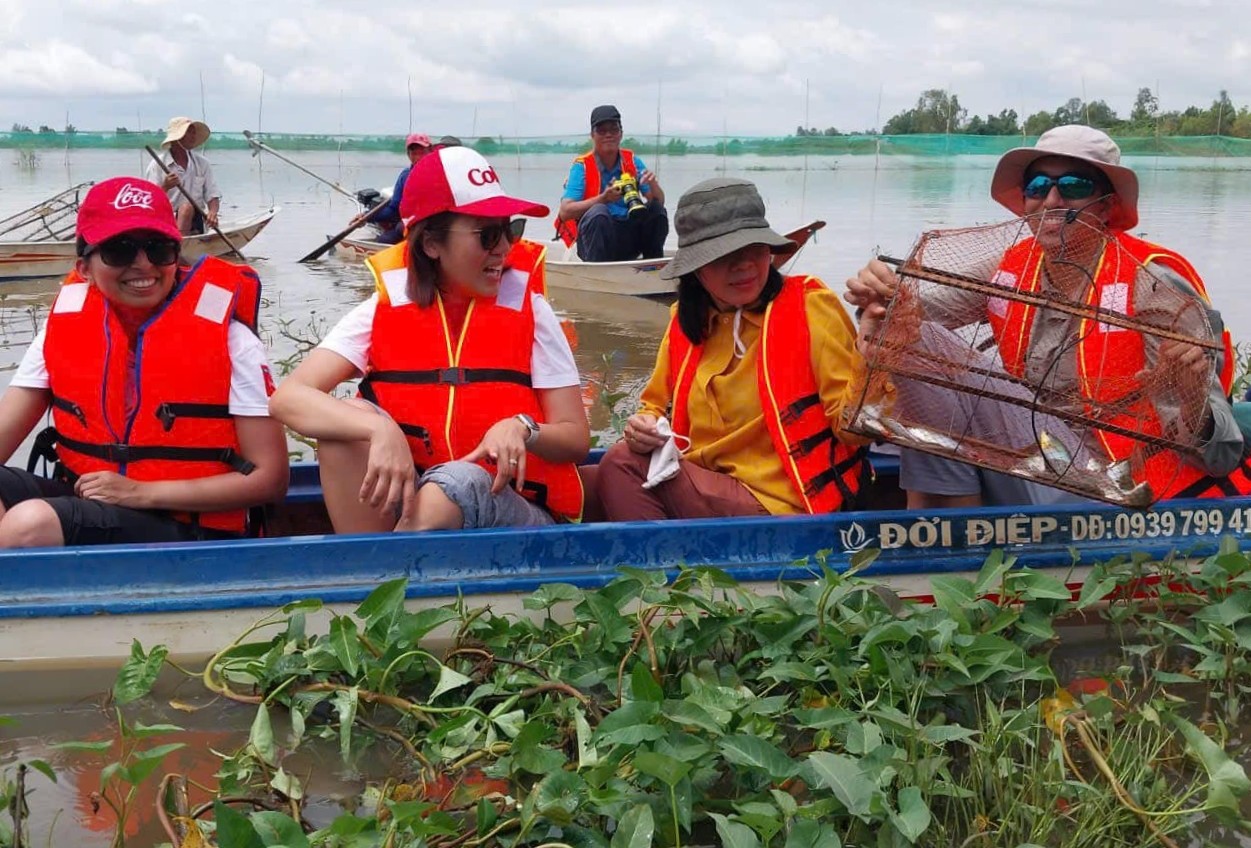 |
The cooperative also offers ecotourism experiences on the flooded fields. Photo: Provided by the cooperative |
The cooperative also offers ecotourism experiences on the flooded fields. Photo: Provided by the cooperative
The Mekong Delta's flood season typically lasts from August to November. The floodwaters bring fertile silt, wash away acid sulfate soils, control weeds and rodents, and deliver a bounty of resources: dien dien flowers, fish, crabs, eels, snakes, and water lilies. Traditionally, locals have relied on these resources for sustenance and income. However, overexploitation has depleted these resources, leading to declining catches.
Fifty kilometers from Phu Tho, the flood-season fish stocking group in Giong Bang hamlet (Thuong Phuoc commune) has also enclosed a 150-hectare area. This is their third year, with 90 households collaborating to protect wild fish. Dang Van Be, the group leader, reports a harvest of nearly 10 tons of fish last year, generating around 200 million VND in revenue.
"We agreed to only catch large fish, leaving the smaller ones for next year. We must consider the future," Be says, emphasizing the group's founding principle.
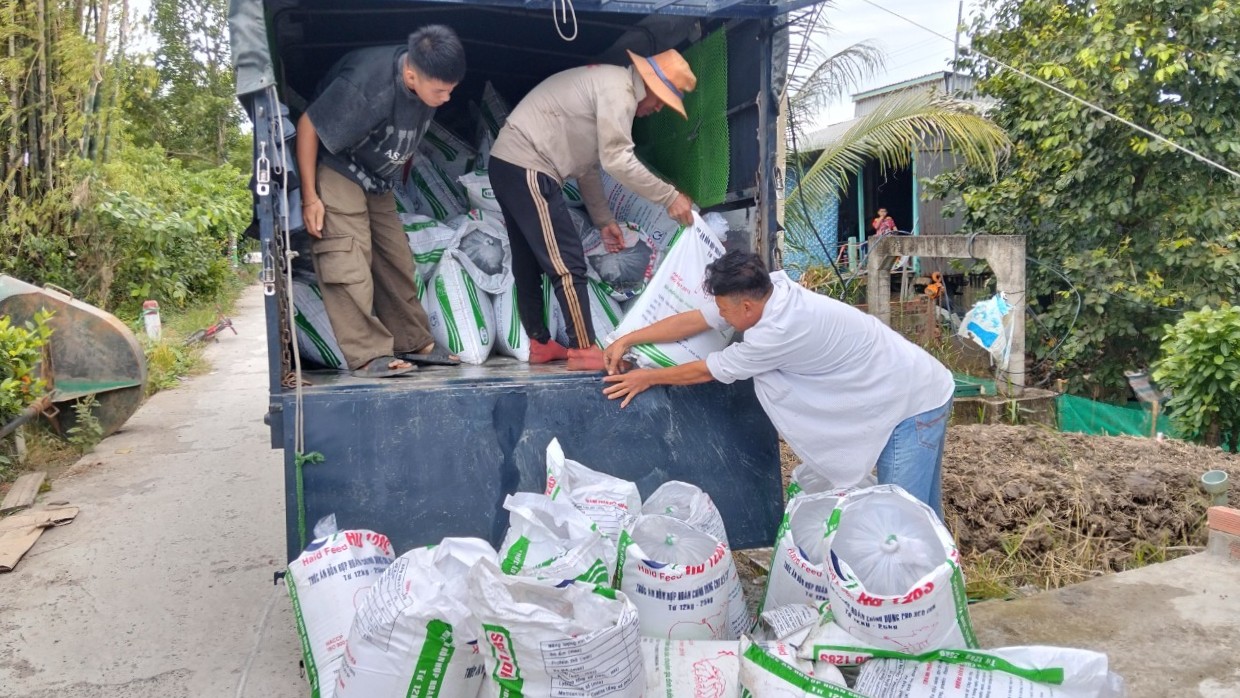 |
Bags of fingerlings ready for release, supplementing existing wild populations. Photo: Tran Thanh |
Bags of fingerlings ready for release, supplementing existing wild populations. Photo: Tran Thanh
Initially, this approach faced resistance, particularly from those accustomed to unrestricted fishing. To protect the stocked fish, members erected nets, patrolled regularly, and persuaded neighboring communities. Their persistence gradually changed minds, and now, some nearby landowners want to join the initiative.
Duong Kim Dung, deputy head of Phu Tho commune's economic department, praises the fish stocking model for its multifaceted benefits: generating livelihoods, promoting tourism, and fostering community awareness of aquatic resource conservation. Local authorities also plan to increase patrols to prevent overfishing.
"This approach not only preserves fish for today but also for future generations," she says.
Ngoc Tai




